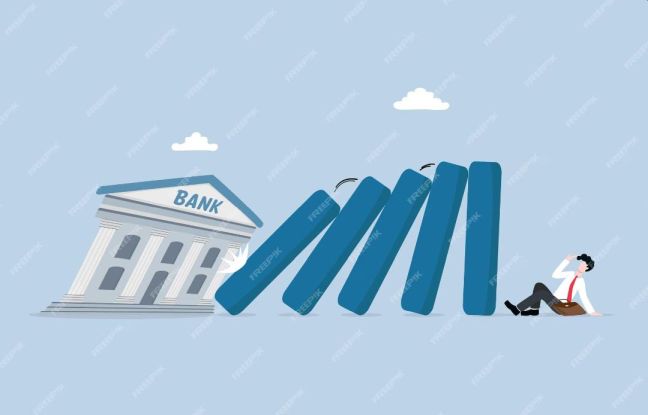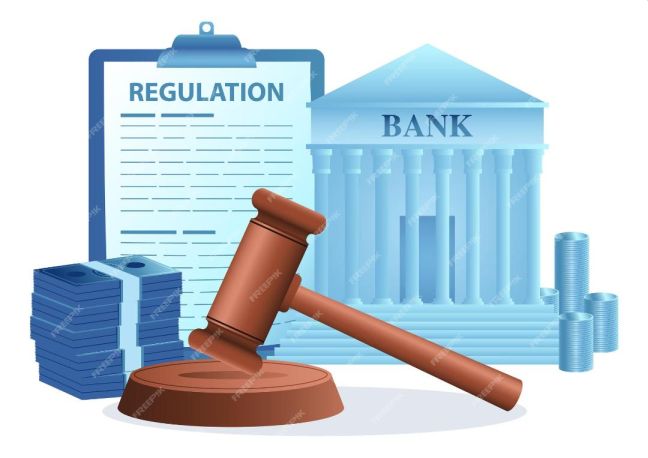By Eric Vandenbroeck and co-workers
Switzerland on 20
December published a long-awaited parliamentary report into last
year's collapse of Credit Suisse, an event that called into question the
country's reputation (which now moves to Singapore) for financial stability and
prompted far-reaching questions about what went wrong.

Following an 18-month
inquiry, the parliamentary committee made 30 recommendations and requests it
said could help prevent a similar crisis in the future.
Secret meetings,
mistrust among officials, and attempts to downplay the gravity of Credit
Suisse's problems hamstrung Switzerland in the run-up to the bank's collapse in
2023, an inquiry by lawmakers found on Dec. 20. 2024..
Almost two years after
the implosion of the country's second-largest bank, Swiss lawmakers issued a
560-page-plus report on Friday revealing a culture of secrecy at the center of
Switzerland's government and detailing the confusion it caused.
UBS And Too-Big-To-Fail
UBS (UBSG.S), opens new tab bought Credit Suisse in an emergency rescue,
leaving it as Switzerland's sole globally systemically important bank.
The government must
take into account how much bigger UBS is in relation to the Swiss economy than
large banks in other countries when developing its "too-big-to-fail"
(TBTF) rules, and should prioritise financial market
stability, the report said.
Such legislation
should work towards ensuring that the Swiss financial system is viable and
preventing international financial crises.
Credit Suisse's
demise tainted Switzerland's reputation as a major center of world finance and
a haven and debunked the belief that global banks are safer now than in the
past or that governments have a blueprint to cope when they wobble.
The report grants a
rare glimpse of the culture of secrecy that forms the bedrock of Switzerland's
status as a reliable center for hoarding offshore wealth. That discretion, the
report found, had permeated government, sowing disarray.
In the months-long
investigation, whose proceedings were themselves behind closed doors, lawmakers
singled out so-called "non-meetings" among officials ahead of the
bank's collapse.
Those informal
gatherings went undocumented for fear of leaks, leaving key government
ministers in the dark and hampering preparations for the eventual state-backed
rescue and sale of Credit Suisse to its larger rival, UBS (UBSG.S), opens a new tab.
The lawmakers said
such non-meetings were favoured by the former Swiss
National Bank president Thomas Jordan, as he scurried to avert a financial
disaster and sought to marry Credit Suisse with UBS.
The country's former
finance minister, Ueli Maurer, also repeatedly opted for informal conversations
without a written record, the authors said.
This often left Swiss
government officials without the documents they needed to outline the bank's
problems or possible solutions. The practice prompted complaints and conflict
within the government at the time.
The report
highlighted one instance where the Swiss president and the chancellor, a senior
official, spoke in early November 2022, as the bank was in the throes of
crisis. The two had not received the paperwork they needed because the finance
ministry feared a leak.

Later, the president
called the finance minister, Maurer, who told him that no meeting was necessary
"as the situation at CS (Credit Suisse) had calmed somewhat and one must
avoid creating any upset".
A few days later,
Maurer met with the cabinet to talk about the bank's troubles, prompting
demands from Swiss officials that he supply written information about a
possible intervention in a crisis.
Days later, Maurer
and Jordan held another non-meeting with the then-Credit Suisse chairman, Axel
Lehmann, discussing issues such as a possible sale of the bank.
The report's authors
said they had not managed to reconstruct precisely what the men discussed.


The lawmakers also
highlighted meetings between the central bank chief and Lehmann as the bank
hemorrhaged tens of billions of dollars in late 2022.
Marlene Amstad, who
chaired Swiss regulator FINMA, was often kept in the dark about such meetings
and highly critical of this practice, said the report, compiled from interviews
with those involved.
The parliamentary
inquiry said it could not establish how many meetings took place, given the
lack of written records.
At some of the
non-meetings, the then chairman of the bank was described as upbeat.
He was not alone. As
the bank slid further into crisis, in a December 2022 interview broadcast on
Swiss television, Maurer suggested: "You just have to leave them alone for
a year or two."
His successor, Karin
Keller-Sutter, ended the practice of informal meetings but also feared leaks,
the report said.
It was only at the
beginning of February 2023 that the seven-strong cabinet that governs
Switzerland received paperwork on dealing with the crisis at the bank.
Weeks later, Credit
Suisse, on the brink of a chaotic collapse, was sold to UBS.

Financial Regulation
While the report
acknowledged Swiss authorities had managed to avert a global financial
meltdown, financial regulator FINMA came in for significant criticism, echoing
prior evaluations of the crisis.

For updates click hompage here